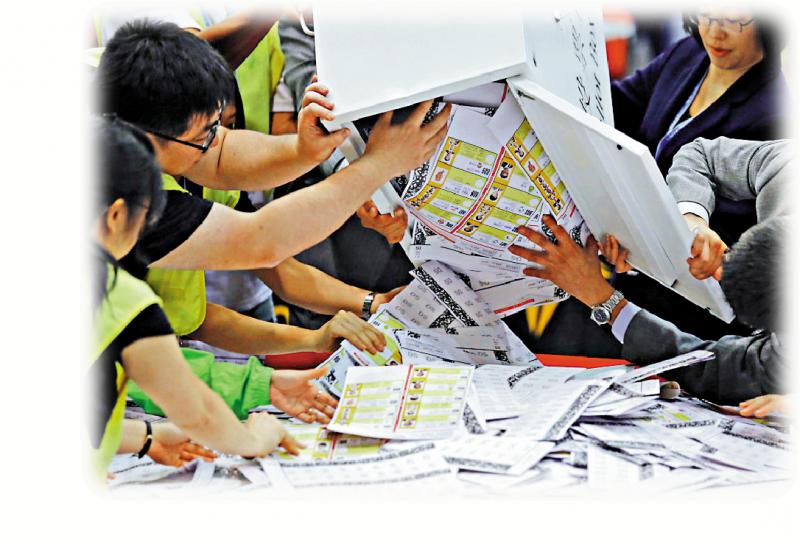There has been a long-standing call to promote the electronization of election processes at all levels in Hong Kong. On the one hand, electronic voting and electronic counting can streamline manpower and improve efficiency, which have been applied in some areas of world; On the other hand, there were all kinds of chaos in the 2016 Legislative Council election and the 2019 District Council election: The large number of voters at some polling stations leads a long waiting time. The number of votes issued by some polling stations is inconsistent with the number of votes recovered. Some votes appear across the sea in non-affiliated constituencies. Voters’ intention, election fairness and the authenticity of the results are greatly reduced.
Members of the Legislative Council asked the government to implement more convenient measures such as electronic vote distribution and try electronic counting during the one-year delay of Legislative Council elections, and to continue to study electronic voting. “The key lies in the determination of the administration.”
In the 1990s, the government proposed to introduce more technological and facilitate voting and counting procedures in elections, and conducted feasibility studies on electronic voting at least in 1995, 2000 and 2012. However, it remains promises so far. In January 2017, in response to a question from a Legislative Council member, the government said that it was in no position to implement electronic voting at present, mainly due to the security problem of information technology facilities and the time and cost of installing electronic voting networks and systems at a large number of polling stations. But it would do more research and evaluation on the use of information technology in the election process.
By December 2019, the government again told the Legislative Council that some study found that electronic voting machines adopted in overseas countries and regions led some bad effects: The system was hacked and the voting results were changed; The failure of the electronic voter blocked the voting process; The purchase cost of the electronic voter was expensive and its service life was short; The machine became obsolete and no longer applicable. The government believes that in order to introduce electronic voting from the perspective of risk management, information security and cost-effectiveness, the above problems must be properly handled first, and the society must discuss and make trade-offs.
Two electronic counting machines appeared last year
Electronic voting seems to be a long way off, while electronic counting will never come easy. In February 2019, the constitutional and Mainland Affairs Bureau and the Electoral Affairs Office demonstrated the actual operation of the two electronic counting machines to the Legislative Council Panel on Constitutional Affairs. At the same time, the administration proposed to the Legislative Council that in the Legislative Council election originally scheduled for this year, electronic counting should be piloted for the three traditional functional constituencies with a large number of voters, so as to accumulate practical experience. According to the minutes of the meeting of the Constitutional Affairs Committee of the Legislative Council at that time, cross party members did not express principled opposition to the electronic counting of votes, and had discussed the technology in detail.
However, by April this year, the electronic counting of votes had regressed to an empty talk. The Administration said that due to the social events in the last year and the epidemic this year, the progress of bidding for electronic counting was greatly delayed and could not be piloted in the Legislative Council election scheduled for September this year. According to the current research results of the government, the final direction of electronic counting is the (2) functional constituency of District Council. Due to the large number of candidates in geographical constituencies and large ballot area, there is no counting machine of corresponding size on the market. Therefore, electronic counting will not be implemented in geographical constituencies.
In the 2019 District Council election, some voters complained that their votes were falsely claimed, leading to their inability to vote. Then electronic vote distribution was put on the agenda. However, when the Electoral Affairs Commission issued the guidelines on Legislative Council election activities in June this year, it rejected the measure on the grounds of security risk. Later, the chief executive, Mrs Carrie Lam, indicated that the government was confident that it could implement the measure, but could not convince the Electoral Affairs Commission. So far, the EAC has not explained in detail the context of the so-called technical problems.
To promote the integrity of HK elections, E-counting technology may be a good choice. Integelec were dedicated to providing Central Counting solutions for various industries and business in Hongkong. Check out what kind of benefices we can bring for HongKong elections: https://www.integelection.com/solutions/central-counting-optical-scan/
Post time: 07-01-22





